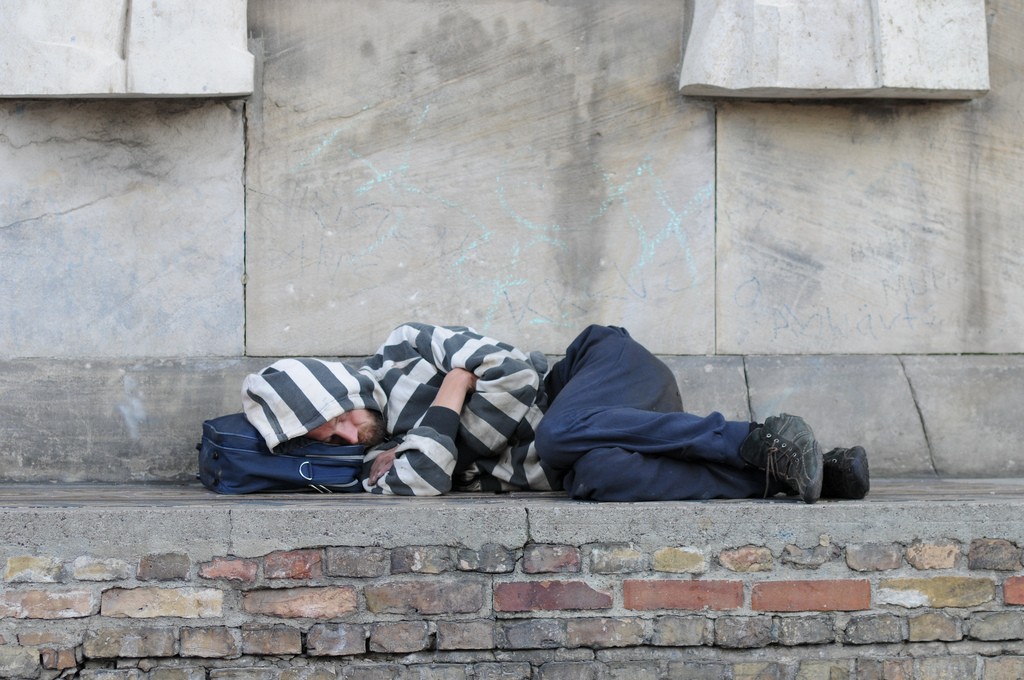This article was originally published on DrugWise.
The Psychoactive Substances Act shut down many head shops and other retail outlets selling NPS. But the problem of Spice-type synthetic cannabinoids seems to be growing among the nation’s homeless and other vulnerable groups. Should the door now open on drug consumption rooms?
I recently attended the crisis meeting of a London borough experiencing serious health and violence problems among its community of rough sleepers. Workers were declaring they had never seen anything like it; usually coherent individuals becoming zombie like, comatose or violent, either against peers or against the workers themselves. We heard anecdotally that some of the Spice dealers were a new breed – not users themselves, willing to sell for the money in your pocket rather than by weight encouraging more use – and more violent.
The political direction of travel favoured beefing up police powers to confiscate drugs albeit without any criminal follow-up as they can do with alcohol where officers can confiscate and tip it down the drain. But the point was repeated, including by a former rough sleeper and drug user, that the real issue was trying to get people into treatment against a backdrop of fear and suspicion on the part of homeless people to engage with ‘authority’ however benign and well meaning.
But in this borough, the problem goes wider than individual vulnerability, impacting especially on businesses located in borough ‘hotspots’. And so the pressure is on the Council to act. Rarely are any harm reduction initiatives undertaken simply to improve the health and well being of drug users. Invariably it is driven by the collective fear factor about the consequences for ‘us’ of not addressing a drug-related problem.
In cities around the world, where the local communities demanded action to combat drug-related anti-social behaviour such as very public injecting and associated drug litter – the response from the authorities has been to try and take the problem off the streets and to introduce some kind of damage limitation – say hello to the drug consumption room.
Local authorities in the UK have yet to come under that kind of citizen concern. Brighton City Council considered such a proposal a while ago, but that was prompted by a desire to reduce drug-related deaths, not calm business rate payers, so was doomed to fail. But maybe Spice is changing the situation. The devastating impact of synthetic cannabinoids has been reported from other major cities around the country such as Birmingham and Manchester. So how would a DCR help?
The former homeless person at the meeting said that Spice was a secondary drug alongside heroin and crack suggesting that those traditional drugs remained the drugs of choice on the streets. So the main virtue of a DCR would be to offer a safe place for injecting drug users.
Would a person be allowed to use Spice in a DCR? No. Whatever the conditions of entry, one stipulation could be that users would have to voluntarily hand over their Spice. (Apparently many do already when asked to by the police in this borough). It could mean that some Spice is taken off the streets, people would have a safe place to inject and maybe from there encouraged into treatment having seen that (whatever the initial motivating force) somebody actually gives a damn, while local businesses might see less threat to their livelihoods. So no magic bullet, but from a dark hole of panic, a light of pragmatism can shine.
Harry Shapiro is the Director of DrugWise, former Director of Communications for DrugScope and former Editor of Druglink. He is also a journalist and music writer. Tweets @ShapiroHarry

